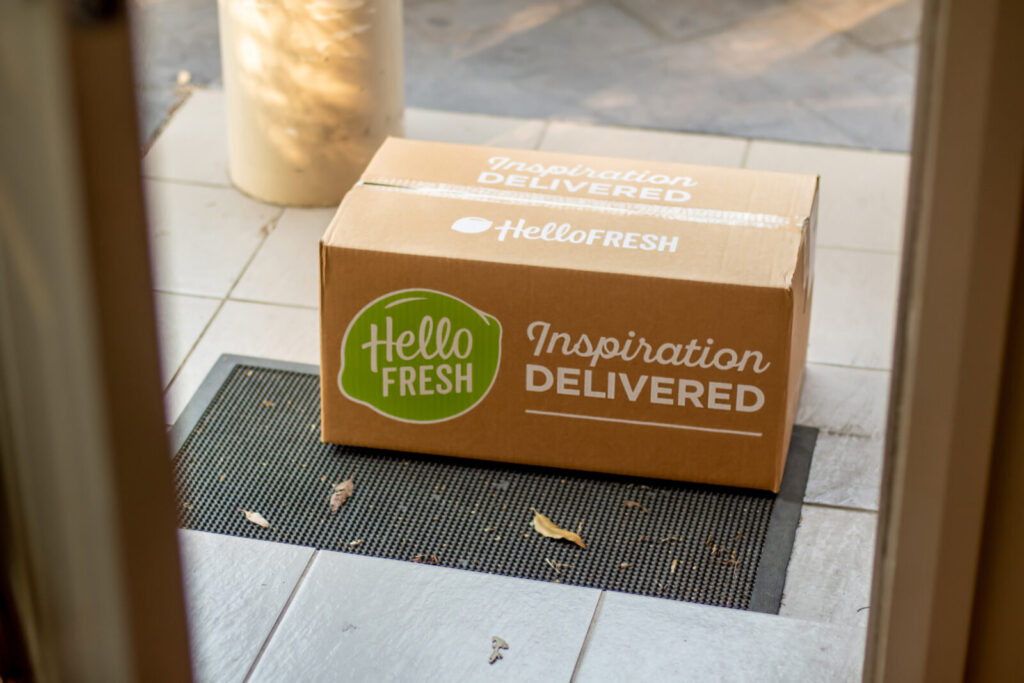Brief • 4 min Read
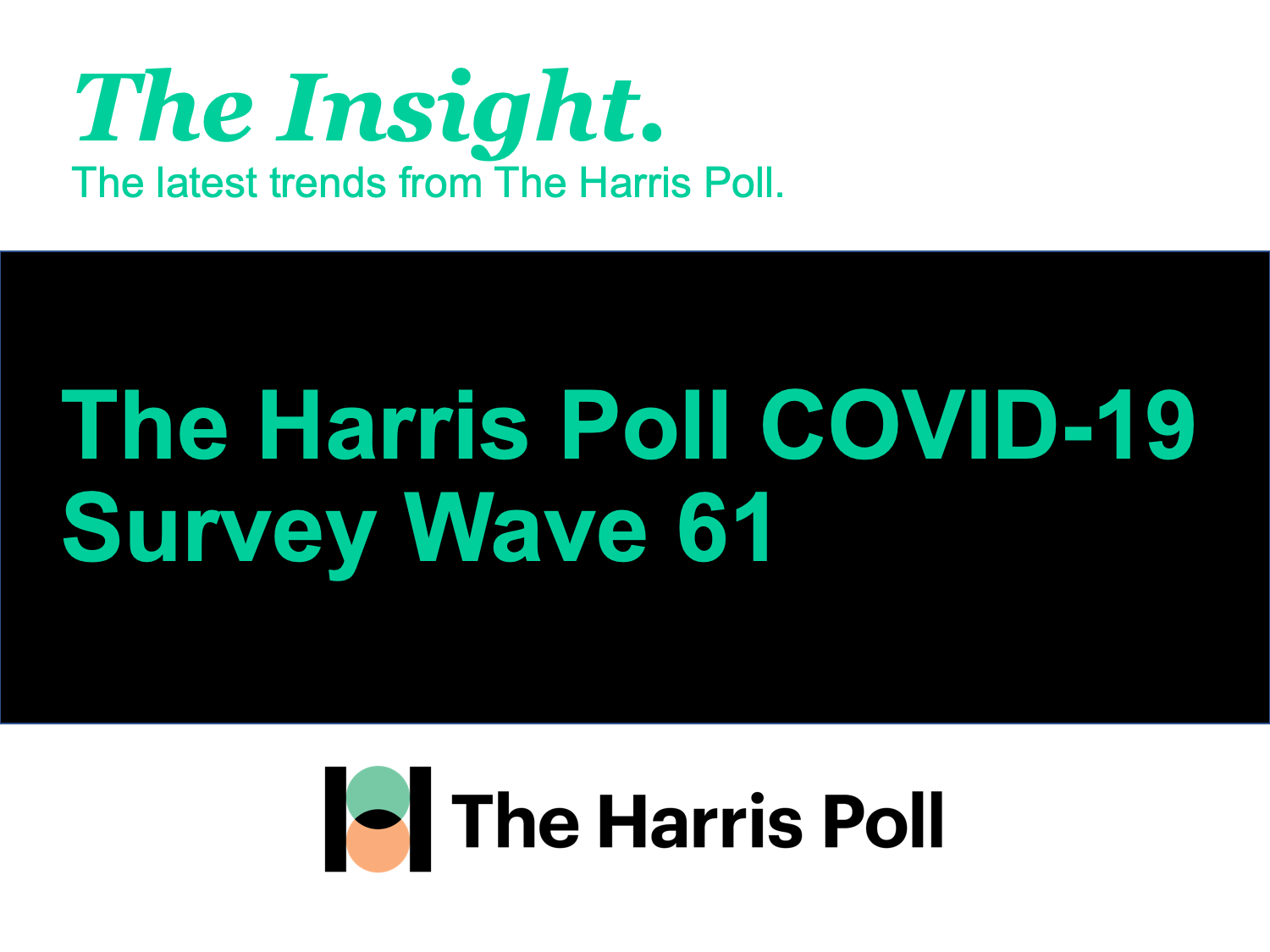
In The Harris Poll COVID-19 Tracker (Week 61) fielded April 23rd to 25th, 2021 among 2,097 U.S. adults, we look at vaccine donation sentiment, the effect of the J&J vaccine pause on vaccine hesitancy, the outlook for summertime travel, the impact of the pandemic on older millennials’ career, and the impact of eliminating single-use packaging at quick-service restaurants.
As a public service, our team has curated key insights to help leaders navigate COVID-19. Full survey results, tables, and weekly summaries can be accessed for free at The Harris Poll COVID-19 Portal. We will continue to actively field on a regular cadence to track the shifts in sentiment and behaviors as the news and guidelines evolve.
Most Americans Say They Should Be Vaccinated Before the U.S. Donates COVID-19 Shots Elsewhere: STAT-Harris Poll
In our new survey with STAT, we found that three-quarters of Americans believe the U.S. government should start donating COVID-19 vaccines to other countries, but only after every person in the U.S. who wants a vaccine has received one. Here’s what else we found:
- Younger Americans (59% Gen Z, 65% Millennials) are more likely to say the U.S. government should start to immediately donate vaccines to other countries compared to older Americans.
- On the flipside, (48%) agree that the U.S. government shouldn’t donate vaccines at all, and instead create a stockpile. Three-fifths (58%) of GOP members agree, while only (44%) of Democrats feel the same way.
- On Monday, the White House announced it would share as many as 60 million doses of the AstraZeneca vaccine as part of an effort to help developing countries fight the pandemic. Officials also announced exploration into options for urgent dispatch of oxygen and other supplies to help India fight a record-breaking second wave.
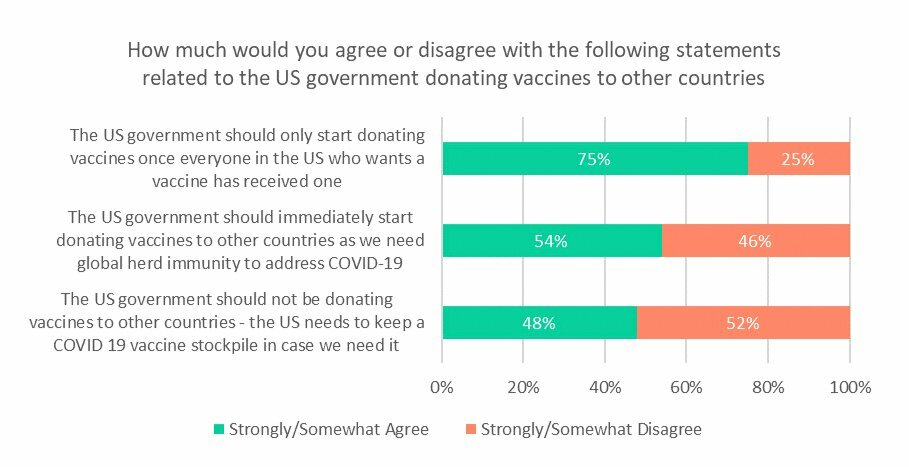
Takeaway: We need other solutions to reduce global vaccine shortages, in fact researchers at Duke suggest “vaccine diplomacy” by using additional funding mechanisms and supporting more licensing deals between vaccine makers and companies based in other countries.
The Bad News About the J&J Pause: Axios-Harris Poll
Publicity surrounding the Johnson & Johnson vaccine’s possible link to blood clots has had a negative effect on those already hesitant to get vaccinated, according to a new Harris Poll shared exclusively with Axios.
- Those who are “vaccine eager” (plan to get vaccinated the first day they are able to) say the pause gives them more confidence (41%) than hesitation (36%), while those who are “vaccine hesitant” (will wait awhile and see before getting vaccinated) say it gives them more hesitation than confidence (53% vs 27%).
- While three-fifths (58%) of those who are “vaccine eager” would be willing to get the J&J vaccine once reinstated, only (39%) of those who are “vaccine hesitant” say the same.
- The pause had an overall negative impact on the willingness of those who are “vaccine hesitant” to get vaccinated at all (62%) vs only (28%) of those who are “vaccine eager.”
- FiveThirtyEight Politics podcast looks at “good” and “bad” polls around the J&J vaccine news – in which they categorize our Axios-Harris Poll as a “good” poll.
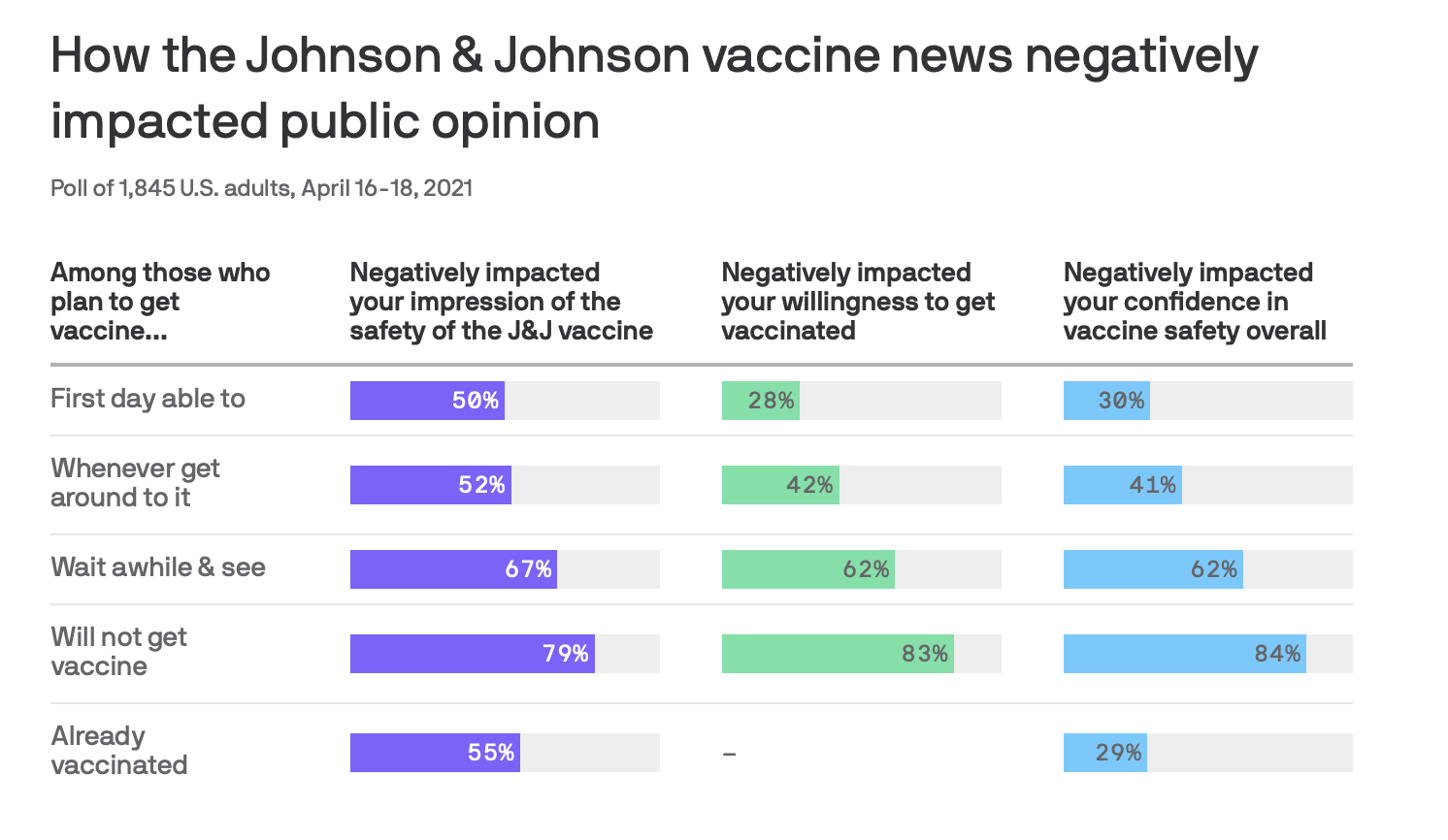
Takeaway: The announcement reinforced existing hesitation in those with already existing concerns in vaccine safety – the audience we most need to earn the trust of in order to end the COVID-19 pandemic here in America.
Summer, Summer, Summertime
What’s better than a summer time vacation? After over a year of COVID social distancing and the CDC updating travel guidelines for fully vaccinated people, the answer is probably not much. Here’s what Americans are thinking as we get closer to being able to travel during the summer:
- When thinking about traveling out of town now, one quarter (26%) of Americans say they are ready to go. This includes (31%) of Millennials and (28%) of Parents. However, (29%) say they are cautious but optimistic.
- Reconnecting with friends and family (19%) is what most are looking forward to when traveling this summer, especially Boomers (24%). While Millennials are most excited for rest and relaxation (20%).
- Half (52%) expect that they will continue to have flexibility, like remote school or work, throughout the fall – especially Millennials (60%). Gen Z does not feel the same with one third (33%) saying they don’t expect to have the same flexibility.
- One in five (20%) of Americans aren’t facing any kind of barrier to travel this summer, but personal financial concerns for Millennials (28%) and being able to take off from work for Hispanic Americans (20%) are potential roadblocks.
Takeaway: Americans remain cautiously optimistic for a (mostly) normal summer and the start of the “roaring 21s” – the two items Americans are most looking forward to purchasing after things return to normal? Plane tickets and hotel stays.
Older Millennials Face Their Second Employment Crisis: CNBC-Harris Poll
This week in our partnership series with CNBC on “Middle-Aged Millennials”, we look at how the pandemic is impacting Older Millennials’ careers. Here is what we found:
- Six in ten (59%) Older Millennials already have had their income impacted by the pandemic and their career paths could be shaken up even more following a second once-in-a-lifetime economic downturn.
- How they were impacted: A quarter (23%) had their hours reduced, (15%) had their wages reduced or are working more hours, and (11%) were laid off.
- However, education level plays a role. Nearly half (47%) of those with a bachelor’s degree say they were recently promoted in the last year compared with (26%) of those without a bachelor’s degree.
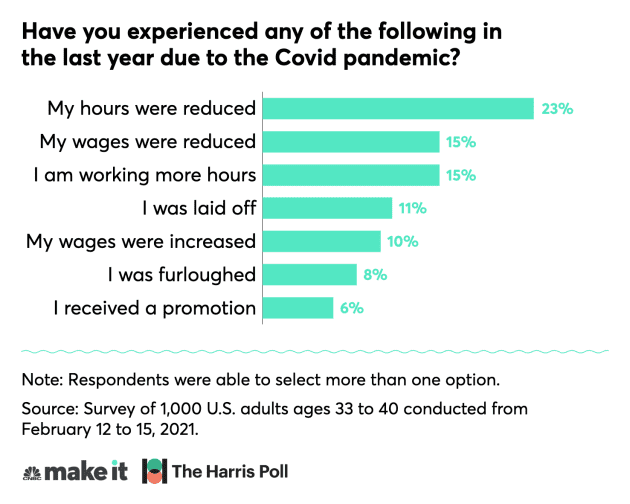
Takeaway: Many Older Millennials started their careers during the Great Recession that gave them limited career opportunities to pay off their surging student loans, let alone save for other financial milestones. Now as many enter management roles and likely more comfortable salaries, they are facing a second employment setback before they are even over the hill.
Fast Food Brands Have A Lot to Gain From Reducing Single-Use Packaging Waste: Adweek-Harris Poll
As a follow up to the Earth Day brand buzz last week, we partnered with Adweek on a survey to gauge consumer sentiment on proposed solutions to one small piece of humankind’s impact on the climate: littering and pollution from single-use fast food containers.
- Most consumers (60%) said knowing that a quick-service restaurant (QSR) was polluting or contributing to litter in public spaces would lower their opinion of the brand and (57%) said they’d be less likely to buy from it.
- Brands also have a lot to gain from improving their contributions to packaging-related waste: (55%) of respondents said they’d have a better opinion of a brand that phased out polystyrene containers.
- Most consumers (55%) said they’d be willing to consider a reusable or returnable container program to address packaging waste at QSRs. Millennials and Gen Z are the most willing (77%).
- Around half of consumers said that a discount would help incentivize programs to reduce waste, but knowing there was an impact on waste reduction and resource conservation is a motivator for (60%).
Takeaway: Climate change is a top concern for Americans and brands looking to bolster their image with core constituencies such as younger Americans will need to convey they take their responsibility to the environment seriously.
Subscribe for more Insights
Subscribe to our newsletter for the latest trends in business, politics, culture, and more.
Download the Data
This survey was conducted online within the U.S. by The Harris Poll from April 23 to 25, among a nationally representative sample of 2,097 U.S. adults.
Download
Subscribe for more Insights
Subscribe to our newsletter for the latest trends in business, politics, culture, and more.
Download the Data
This survey was conducted online within the U.S. by The Harris Poll from April 23 to 25, among a nationally representative sample of 2,097 U.S. adults.
DownloadRelated Content






